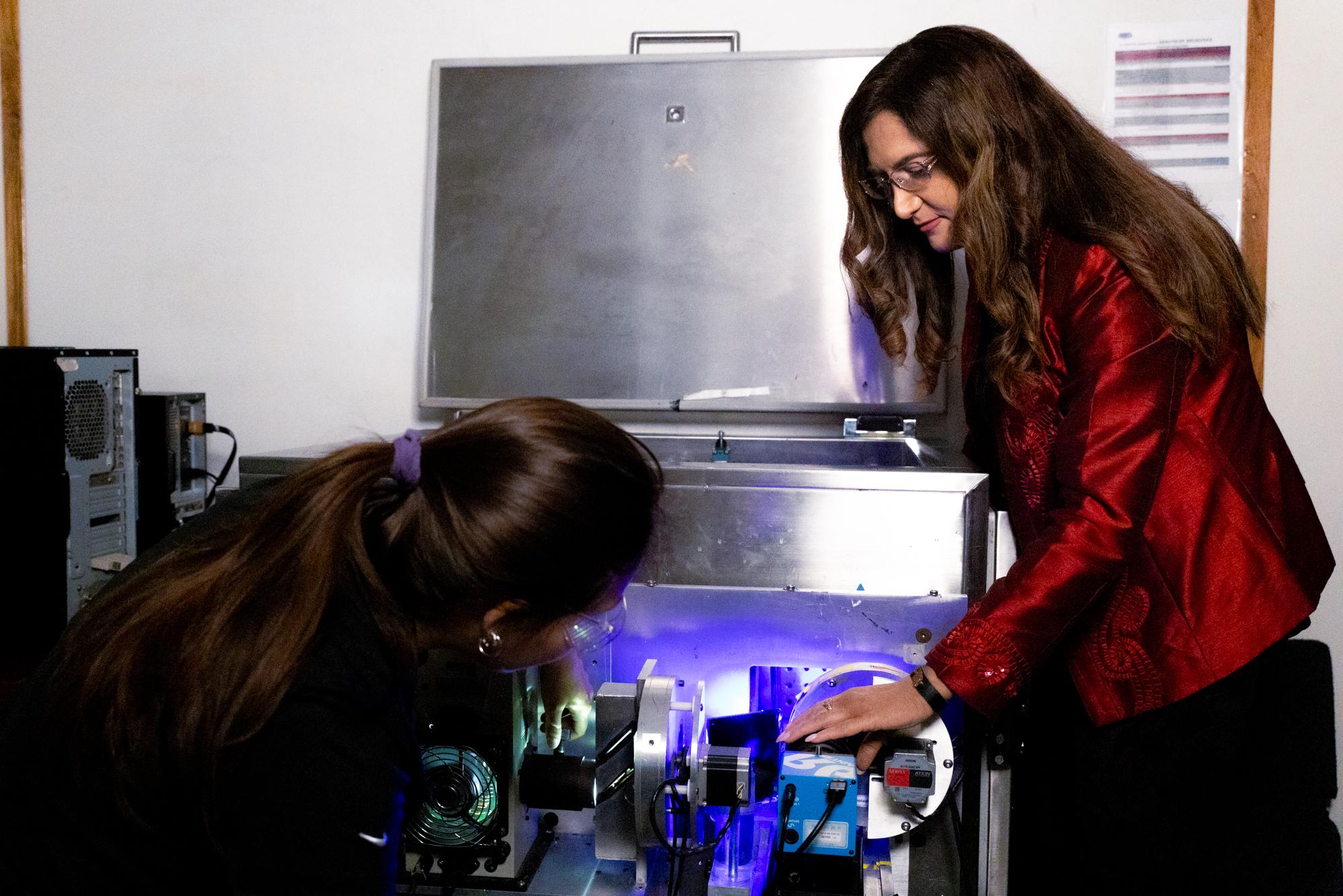Lab Highlights

Biophotonics Lab
At Florida Atlantic, Mahsa Ranji is a dynamic force in the field of biophotonics. As an Associate Professor in Electrical Engineering and Computer Science and an I-SENSE Fellow, she leads the Biophotonics Research Lab, where she focuses on designing and deploying advanced medical diagnostic instruments. Her work aims to transform disease diagnosis and therapy assessment.
With expertise in biophotonics, bio-instrumentation, and biomedical engineering, Professor Ranji's goal is to bring laboratory techniques into clinical settings. She develops optical imaging tools to investigate tissue biomarkers in real-time, providing insights into organ dysfunction and disease progression.
Her research bridges engineering, medicine, and biochemistry. Collaborating with Florida Atlantic’s School of Medicine, Biomedical Sciences, and I-Brain research institutes, as well as institutions like UW-Madison and the Medical College of Wisconsin, Professor Ranji has advanced our understanding of diseases such as diabetes, cancer, cardiovascular disease, and Alzheimer's disease.
Professor Ranji's work includes optical metabolic imaging in Alzheimer’s disease rodent models, shedding light on the metabolic response to mitochondrial dysfunction. Her research on optical imaging in cancer radiotherapy aims to improve treatment outcomes by identifying tissue biomarkers and distinguishing radiation responses.
In her lab, Professor Ranji has developed advanced optical imaging technologies, including bio-instrumentation, optical coherence tomography, in vivo fluorometry, and optical imaging, to study tissue characteristics and disease markers.
Committed to advancing biophotonics for medical breakthroughs, Professor Mahsa Ranji is making significant contributions to disease diagnosis, treatment, and personalized medicine, with a lasting impact on global health and well-being.